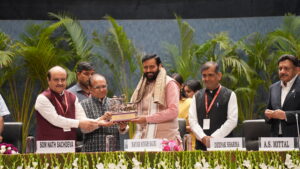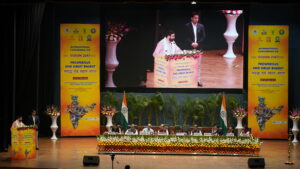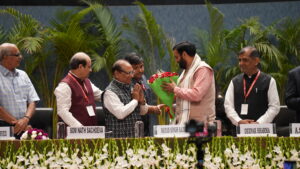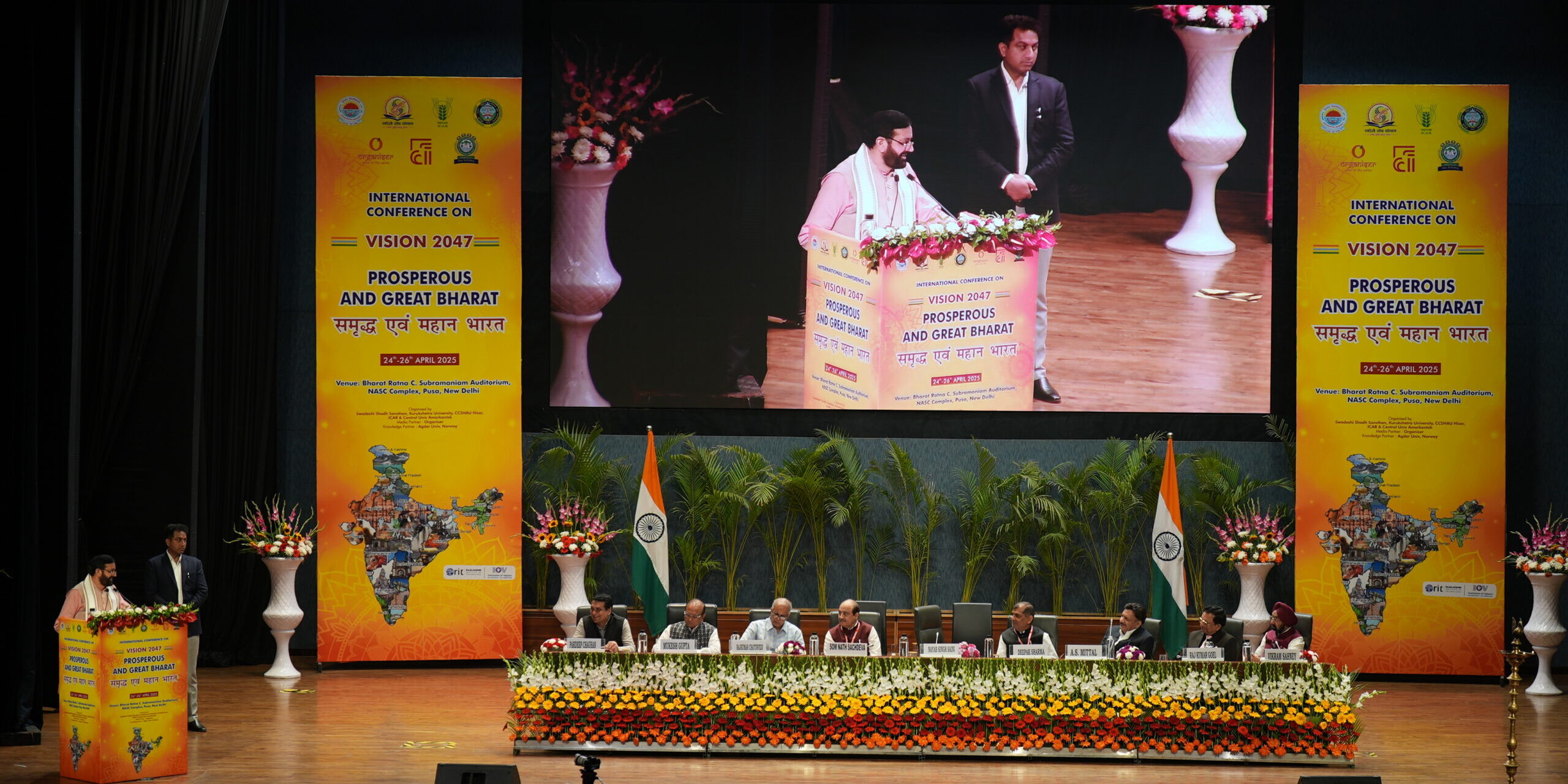International Conference Vision 2047: Prosperous and Great Bharat
Plenary Session-2 Report
Harnessing Demography & Strategies for Employment
Date: May 25, 2025
Time: 09:30 am
Venue: Bharat Ratna C. Subramaniam Auditorium
Speakers: Hon’ble CM Haryana- Sh. Naib Singh Saini, Sh. Sidharth Ji, VC- DU/IPU, Minda Group-Rep
Session Incharge: Prof. Somnath Sachdeva (KUK), Prof. Pradeep Chauhan (JNU)
“Harnessing Demography & Strategies for Employment: Education, Skilling, Entrepreneurship, Innovation Ecosystem & Stable Youth Population”
The conference’s inaugural session brought together key thought leaders and policymakers to explore how Bharat can transform its youthful population into a force for national transformation by 2047. The session highlighted the crucial pillars of education, skill development, local enterprise, and youth empowerment, with an emphasis on rural innovation, industry collaboration, and national pride.


Shri Nayab Singh Saini – Hon’ble Chief Minister of Haryana
“Our youth are not a liability. They are Bharat’s future energy—ready to shape a self-reliant, modern, and culturally rooted nation.”
CM Saini stressed that Bharat’s strength lies in its young population, and it must be empowered through high-quality, value-based, and employability-focused education. He requested the VC’s present in the conference to bring a strict policy against drug use in their universities and whoever is found guilty of this, people should complain about them on Manas helpline which is controlled by the government, so that a strict policy can be made against them.
A significant highlight was his reference to the “Drone Didi” scheme—a flagship rural skilling program that trains women, especially in villages, to operate agricultural drones. He presented this as a ‘model of tech-enabled rural empowerment’ and women-led innovation. The initiative not only promotes agricultural efficiency but also opens a ‘new career path for rural women’, making them active participants in Bharat’s tech-driven future.
He asked for strengthening local self-government bodies, rural industry, and micro-enterprises to create region-specific employment. He called for decentralization of opportunities, so youth need not migrate to metros. He highlighted Haryana’s initiatives in setting up skill universities and partnerships with industries, tailored to current and future economic needs. He reiterated that true education must be value-based and rooted in Indian cultural ethos, combining tradition with technology to foster a balanced and resilient citizenry.
Shri A.S. Mittal – Industrialist & Agri-Visionary
- “The potential of agriculture is limitless—what we need is a generation of rural innovators, not just farmers.”
Mittal Ji called for a transformation in mindset where youth, especially in rural areas, are encouraged to create enterprises rather than wait for government jobs. He emphasized the importance of modernizing agriculture through technology, value chains, and start-ups that add value beyond the farm. He advocated for investment in rural infrastructure and skills to ensure economic decentralization and inclusivity.
Prof. Raj Kumar Goel – Vice-Chancellor, Uttar Pradesh Technical University
- “A degree should be a passport to employment, not just a piece of paper.”
Prof. Goel focused on aligning education with employability, urging universities to collaborate directly with industry to co-create courses and internships. He emphasized that the gap between classroom learning and practical skills must be narrowed for Bharat to tap into its demographic dividend. He supported adoption of online learning platforms and modular skill programs that allow youth to learn while working.

Shri Mukesh Gupta – Founder, Graphis Ads
“Young Indians today must believe that they are building not just a career, but the future of Bharat.”
Delivering the vote of thanks, Shri Mukesh Gupta expressed heartfelt gratitude to all the dignitaries, speakers, organizers, and participants who contributed to the success of the inaugural session. Reflecting on the discussions, he emphasized that young Indians must see themselves not merely as job-seekers but as active architects of Bharat’s future. He passionately spoke about the transformative power of messaging, branding, and aspirational storytelling in shaping the mindset of the nation’s youth.
Shri Gupta highlighted the importance of using media to showcase success stories and instill cultural pride, thereby nurturing self-confidence and ambition among the younger generation. He proposed the need for a strong international branding strategy for Bharat—one that harmonizes the country’s timeless heritage with its spirit of modern innovation.
In conclusion, he reiterated the key takeaways from the session: the necessity of empowering youth through a multidimensional strategy rooted in education, skills, values, and aspirations; the role of rural innovation, such as the “Drone Didi” initiative, in creating inclusive growth; and the importance of structural education reforms and industry-academia collaboration. He closed by affirming that true national transformation requires sustained, collective effort from all sectors—government, academia, industry, and media—to realize the vision of a prosperous and great Bharat by 2047.






